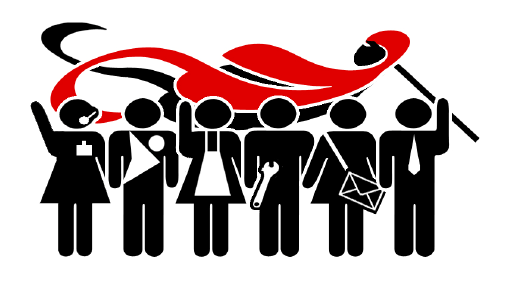
Surely if we were all more committed to buying green, fair trade, or ethically produced products, there would be less environmental and economic exploitation in the world, right?
The idea that our consumer choices are ‘votes’ for the kind of world we want to live in is a powerful one, but it is an idea that is gravely mistaken.
Our current economic system, capitalism, is eating away at the ecological basis of our existence, whilst exploiting and dominating the lives of billions of people. This destruction, domination and exploitation is driven not by consumer choices, but by the logic of capital accumulation.
All businesses are confronted by the need to remain profitable. Businesses that do not generate a healthy return on investment will soon go bankrupt and be replaced by those enterprises that are profitable. But it is not enough to simply be profitable, all businesses are in competition to achieve ever greater investment and profit. Capitalists invest their money in enterprises based on their understanding of what will deliver the highest return, whilst businesses seek bigger returns by achieving greater market share. They achieve greater market share by lowering prices, selling more, and driving their competition out of the market. It is this process that drives capitalist enterprises to consume larger and larger quantities of resources, in order to produce more, and sell more, whilst pay workers less.
The logic of ethical consumerism assumes that the destructive waste of capitalism is caused by the demands made by consumers (most of whom are in turn workers). The argument goes that it is our desire for more stuff that has pushed capitalist firms to produce in ever greater quantities, and at ever lower costs no matter the ecological or human impact. This assumption is incorrect.
Capitalism is driven towards expansion, irrespective of the level of demand that exists for the goods and services that capitalist enterprises produce. It is for this reason that capitalists first chased new markets for their goods (and new sources of raw materials) across the globe. Capitalism now embraces the entire world in what is, more or less, one capitalist economic system.
Despite the fact that capitalism now embraces the globe, the logic of capitalist expansion remains unchanged. Individual capitalist enterprises must strive to produce greater levels of profit, or they will be replaced by those that do. Whenever capitalism as a whole is not growing, it is in crisis. In order to continue clearing the market place of this over-abundance of production, capitalist enterprises engage in a continual process of inventing and manufacturing new needs and new wants among consumers. There is even a whole industry that specializes in this practice; it is called marketing.
The decision by a minority of people to buy this type of product over that type of product will not challenge the accumulative logic of capital. It is capitalism’s drive toward perpetual growth that is consuming the ecological basis of our continued existence.
But capitalists love the logic of ethical consumerism. When a concerned group or NGO calls for a boycott of this or that product or practice, capitalist enterprises can profit from selling us the greener, more ethical alternative at a higher price! The “more ethical alternative” is rarely better than a greenwash that serves to improve corporate image and assuage middle class guilt whilst doing little to change underlying practices in production. The wealthiest may have been sold the image of social good, but the bulk of us can do little other than put food on our tables and clothes on our backs at the cheapest possible prices.
A particularly pernicious strand of ethical consumerism is expressed in relation to climate change and energy consumption. Those wealthy enough to afford “green energy”, solar panels, or household lithium battery arrays gleefully finance wasteful new industries. The wealthy enough eco-warriors then turn their noses up at the destructive ‘choices’ of the great mass of people just struggling to maintain access to heating, cooking and light from any available energy source.
Even as larger numbers of the middle class in the developed world pour money into “clean energy”, they don’t somehow reduce the consumption of coal, oil or gas. Lower demand for non-renewable energy lowers the price of coal, gas and oil inputs, which is readily sucked up by industries that will always consume the cheapest available energy source, or be replaced by the manufacturer that does.
Ethical consumerism is worse than useless. The false choice of “ethical consumption” gives those firms most exposed to the risks of consumer backlash a ready source of green wash, and it provides new opportunities to sell “ethical” products at higher prices. Whilst doing this, “ethical consumerism” diverts attention away from the dynamic that is destroying our environment, exploiting workers, and wasting resources. Capitalism requires and is driven towards ceaseless, unending, economic growth. This requires ever an expanding consumption of the earth’s resources, the production and sale of ever more products, and the subordination of the mass of the world’s population.
I fully understand and accept why people with the ability to do so might wish to minimize the impact that their consumptive choices have of the planet, on the environment, or on working conditions. But we cannot simply end sweatshops, or the burning of fossil fuels, or destructive agricultural practices, by boycotting this or that product. If we are to save a planet worth living on, we have to end an economic system that is making our planet unlivable.




